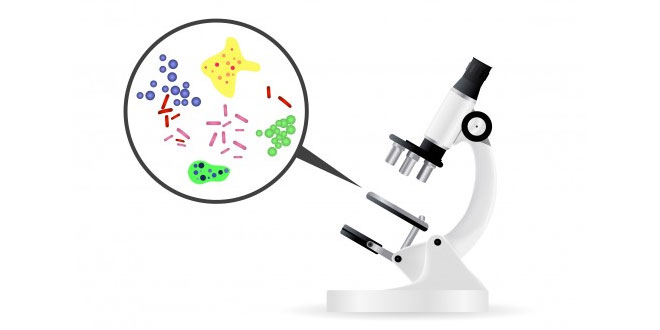Question: How does mosquito help in spreading viruses / microorganisms?
Answer: Mosquitoes are carriers of germs. For example: the female Anopheles mosquito carries the malaria germs. When it bites a healthy person, he / she can get infected with malaria.
Question: Microorganisms are found even in places where no other life form can exist. What makes microorganisms so hardy?
Answer: They are so hardy because they form a hard outer covering called cyst around themselves. They do this when conditions are not favourable, such as under extreme conditions of temperature and dryness. They survive by remaining in active and gets active when conditions are favourable.
Question: Which microorganisms is used to make bread soft and fluffy? Discuss how this happens.
Answer: The microorganism used is yeast. The yeast uses sugar for food. In the process of breaking down sugar, alcohol is formed and carbon dioxide is given off. This process is known as fermentation. The bubbles of carbon dioxide given off cause the dough to rise. This dough can be used to make bread. When this dough is baked, more bubbles of gas are formed due to the heat. As the gas escapes, the bread rises and becomes soft and fluffy. The heat during the baking process also evaporates the alcohol.
Question: What is fermentation? Discuss its use in making alcoholic beverages.
Answer: The process of breaking down of sugar by the action of microbes to form alcohol and carbon dioxide is called fermentation. Yeast ferments sugar to produce alcohol and gives out carbon dioxide. This is used to make bread and alcoholic beverage such as beer and wine.
Question: How do viruses cause diseases?
Answer: When a virus enters the living cell of an organism, say a human, it is able to reproduce. It uses the energy of the host cells for this purpose. After the formation of thousands of viruses, the host cell often dies. It bursts and new viruses spread and invade other cells. As a large number of host cells die, the person falls ill.
Question: How does vaccine work?
Answer: Vaccine consist of dead or weakened microbes. When these are swallowed or injected into the body of a patient, the body produces antibodies to fight them. The antibodies remain in the body and protect it from any future attack of the disease germs. The body is then said to have developed immunity against disease. Vaccination is therefore called immunization.
Question: How does salt prevent from spoilage?
Answer: Salt, checks the growth of bacteria by forcing microorganisms to lose water by a process called osmosis. It is used for preserving meat, fish, pickles, chips etc.
Question: What is ‘dehydration’ of food? In what way is this technique useful?
Answer: Dehydration of food consists of removing water from it. This stops microorganisms from growing as they cannot grow without water. Cereals, pulses, spices and dry fruits are preserved by this method.
 Class Notes NCERT Solutions for CBSE Students
Class Notes NCERT Solutions for CBSE Students




It’s really useful. Thanks alot!
It’s really useful. Thanks alot!